Understanding the Crucial Role of Medical Reviews
Medical record reviews are a cornerstone in the intersection of healthcare and legal proceedings. They provide a detailed and objective lens through which the complex medical journey of an individual can be analyzed, ensuring that no critical detail goes unnoticed. This article explores how expert medical reviews uncover missed information essential for the resolution of legal and medical disputes, highlighting methods, impacts, and best practices for attorneys and individuals alike.
The Vital Importance of Medical Record Reviews in Legal and Medical Cases
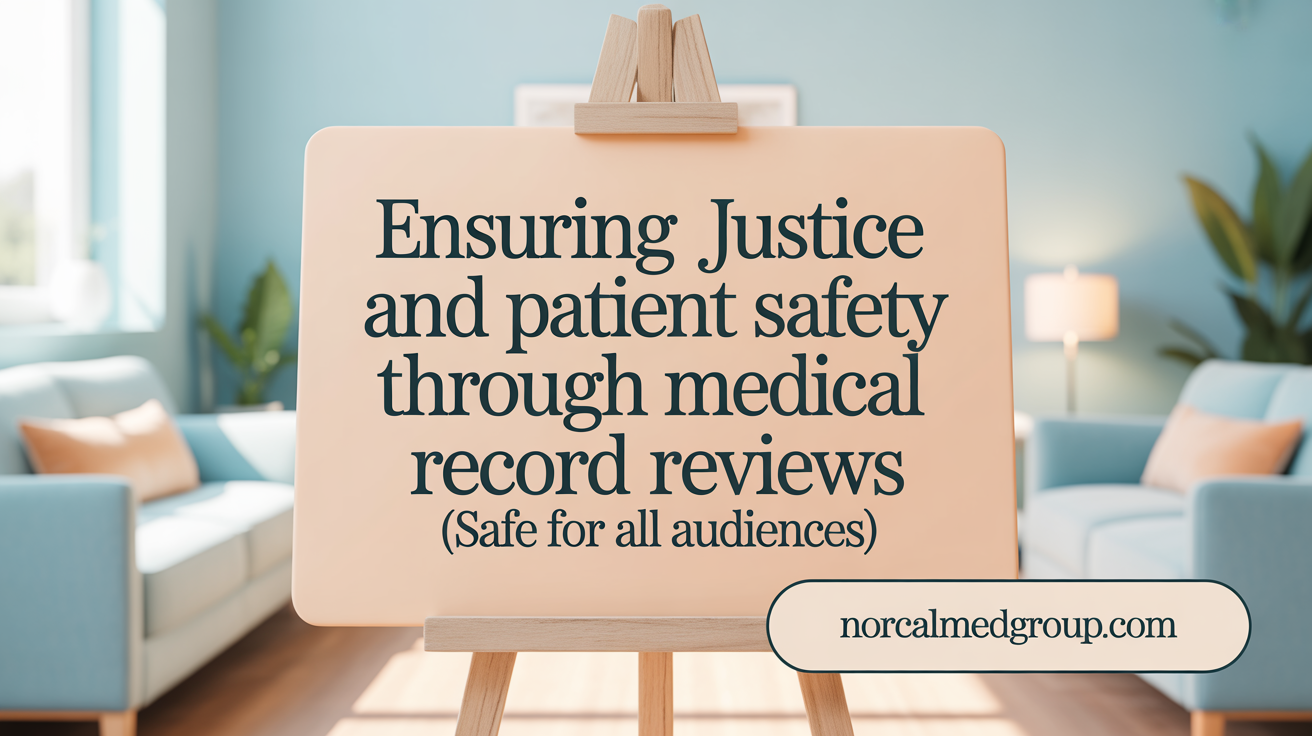
What is the importance of medical record reviews in legal and medical cases?
Medical record reviews serve as a cornerstone in both legal and healthcare settings. They provide an objective, detailed account of a patient’s medical history, treatments, and outcomes. This comprehensive data helps in establishing essential case elements such as liability, causation, and damages.
In legal cases like malpractice or personal injury claims, reviewing records uncovers relevant details that might otherwise be overlooked. It identifies potential errors, omissions, or inconsistencies that can either support or challenge claims. For example, records might reveal delayed diagnoses or treatment deviations from accepted standards.
Expert analysis adds significant value. Legal nurse consultants or medical experts scrutinize these records to interpret complex medical data, verify accuracy, and assess the appropriateness of care received. This review can determine injury severity, establish if standard care was violated, and support the legal argument.
Accurate, thorough reviews influence case outcomes by strengthening evidence. They enable attorneys to build compelling narratives and support expert testimonies. Clear, well-organized records can sway court decisions, leading to fairer judgments and appropriate compensation.
In essence, medical record reviews ensure accountability and transparency, playing a crucial role in justice, patient safety, and effective dispute resolution.
Expert Analysis: Uncovering Overlooked or Missing Medical Details
How do expert analyses of medical records uncover critical, overlooked, or missing details?
Expert reviews of medical records play a vital role in revealing information that might otherwise go unnoticed. Specialists with medical knowledge meticulously analyze extensive, complex documentation to identify inconsistencies, omissions, and errors. They look for discrepancies such as gaps in treatment timelines, conflicting notes, or missing records from key providers.
Advanced tools like artificial intelligence (AI) significantly enhance this process. For example, AI platforms such as Superinsight can rapidly index and categorize large volumes of unstructured records, flagging potential issues like duplicated entries, outdated information, or safety warnings ignored by providers.
Experts interpret complex medical data—ranging from diagnostic codes to treatment progress notes—to clarify what truly happened during patient care. This helps uncover overlooked diagnoses or procedural mistakes that could be crucial in legal cases.
By systematically cross-checking billing records against clinical notes and testing results, experts can spot inconsistencies that point to negligence or malpractice. They also identify deviations from standard care that might signify errors.
Moreover, medical professionals translate technical language into understandable insights for attorneys and courts, ensuring that critical evidence is accurately presented. They help establish causation and liability by uncovering procedural lapses or misdiagnoses.
Overall, expert analysis combines detailed medical expertise with technological aid to expose hidden or missing information, providing robust support for legal claims and influencing case outcomes.
Processes and Technologies Utilized in Medical Record Review
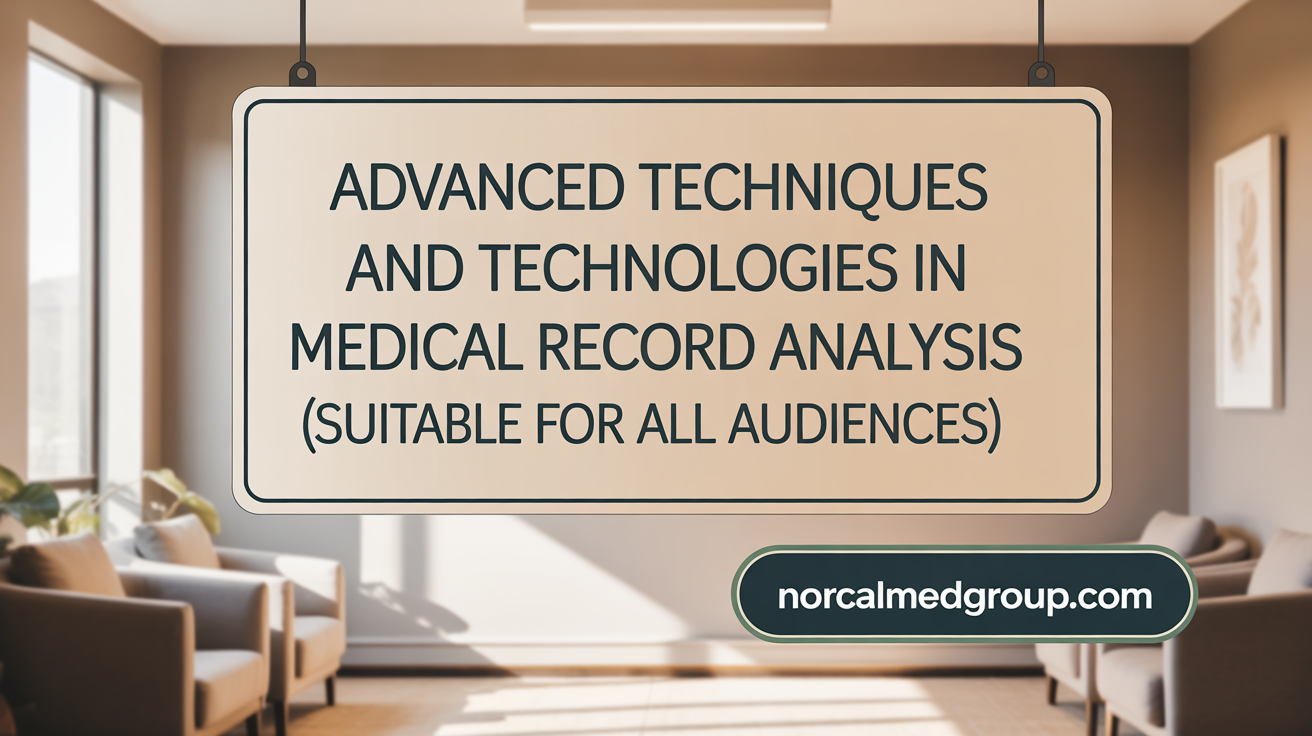
What processes and methods are commonly used for reviewing and analyzing medical records?
Medical record review involves several structured approaches to ensure thorough analysis. One common method is chronological reconstruction, where reviewers organize the events, treatments, and interactions in the order they occurred. This helps build a clear timeline of the patient's care.
Cross-referencing methods are also essential. Reviewers compare records against established clinical standards, guidelines, and documentation criteria to verify completeness and correctness. They evaluate whether all necessary documentation, such as diagnoses, procedures, and notes, are present and consistent.
Additionally, the use of trigger tools like the Global Trigger Tool (GTT) and the Harvard Medical Practice Study (HMPS) has gained popularity. These tools employ specific
Detecting Errors, Negligence, and Missing Information Through Medical Reviews
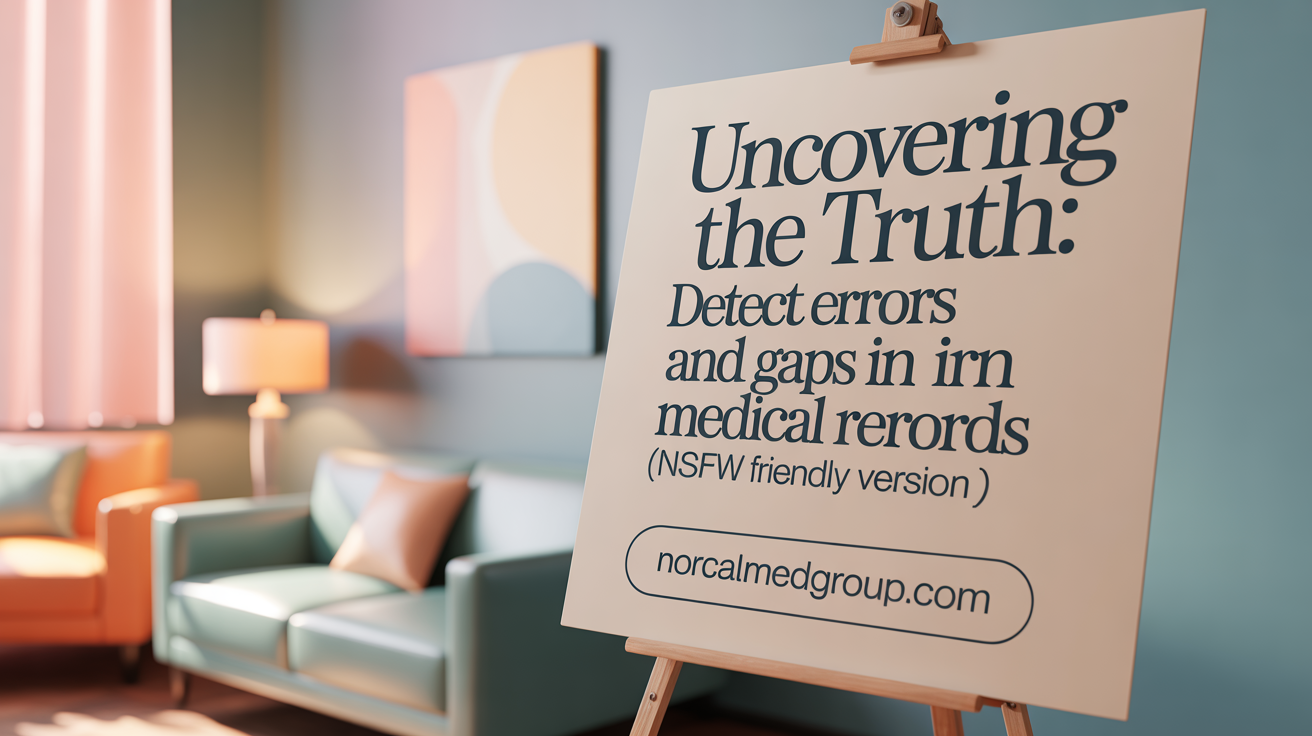
How can medical record reviews help discover errors, negligence, or provide crucial evidence?
Medical record reviews are critical in unveiling documentation mistakes, procedural oversights, and inconsistencies that may point to negligence or medical malpractice. They offer a detailed view of the care delivered, including patient history, treatments, and consent forms, which serve as essential evidence in legal cases. By examining the sequence of events and the content within records, reviewers can identify lapses such as missed diagnoses, delayed treatments, or improper procedures that might have contributed to adverse outcomes. These reviews can also uncover systemic issues like staffing shortages or repeated errors, strengthening arguments for liability. Ultimately, comprehensive record reviews produce objective, detailed data that underpin strong legal cases, making it easier to prove or disprove negligence and understand the full scope of medical errors.
What techniques can be used to identify missing or incomplete medical records?
Detecting missing or incomplete records involves several strategic approaches. First, professionals conduct meticulous audit processes by comparing expected documentation with the actual records retrieved, ensuring all necessary information is accounted for. They verify the consistency across billing statements, admission forms, lab reports, and imaging results to spot discrepancies or gaps. Electronic Medical Records (EMRs) contain metadata that can be analyzed to find anomalies or unusual access patterns indicating missing data. Statistical techniques, such as multiple imputation methods like MICE (Multiple Imputation by Chained Equations), allow analysts to estimate missing data points based on related variables, enhancing data integrity. Additionally, linking EHR data with external sources like the National Death Index or census records can reveal missing information about a patient's history or status. Conducting timeline checks by cross-referencing dates, events, and documentation helps highlight gaps. When needed, professionals also directly contact healthcare providers to clarify or obtain missing records, ensuring a comprehensive review.
Impact of thorough reviews on evidence quality
Thorough medical record reviews significantly enhance the quality of evidence in legal cases. Complete and accurate records help establish clear timelines, causation, and liability, which are pivotal in personal injury and malpractice litigation. They aid in detecting errors, omissions, or inconsistencies that could undermine a case or, conversely, strengthen it. Moreover, detailed reviews can uncover systemic issues or recurring patterns, supporting claims of negligence at a higher organizational level. Well-documented reviews often lead to more precise quantification of damages and better-informed case strategies. Failing to identify errors or gaps can weaken a case, delay proceedings, or result in dismissals. Therefore, investing in meticulous review processes, employing advanced techniques for detecting missing data, and collaborating with experienced professionals are essential steps to ensure the most credible and valuable evidence supports legal outcomes.
The Crucial Impact of Medical Reviews in Injury, Malpractice, and Death Cases
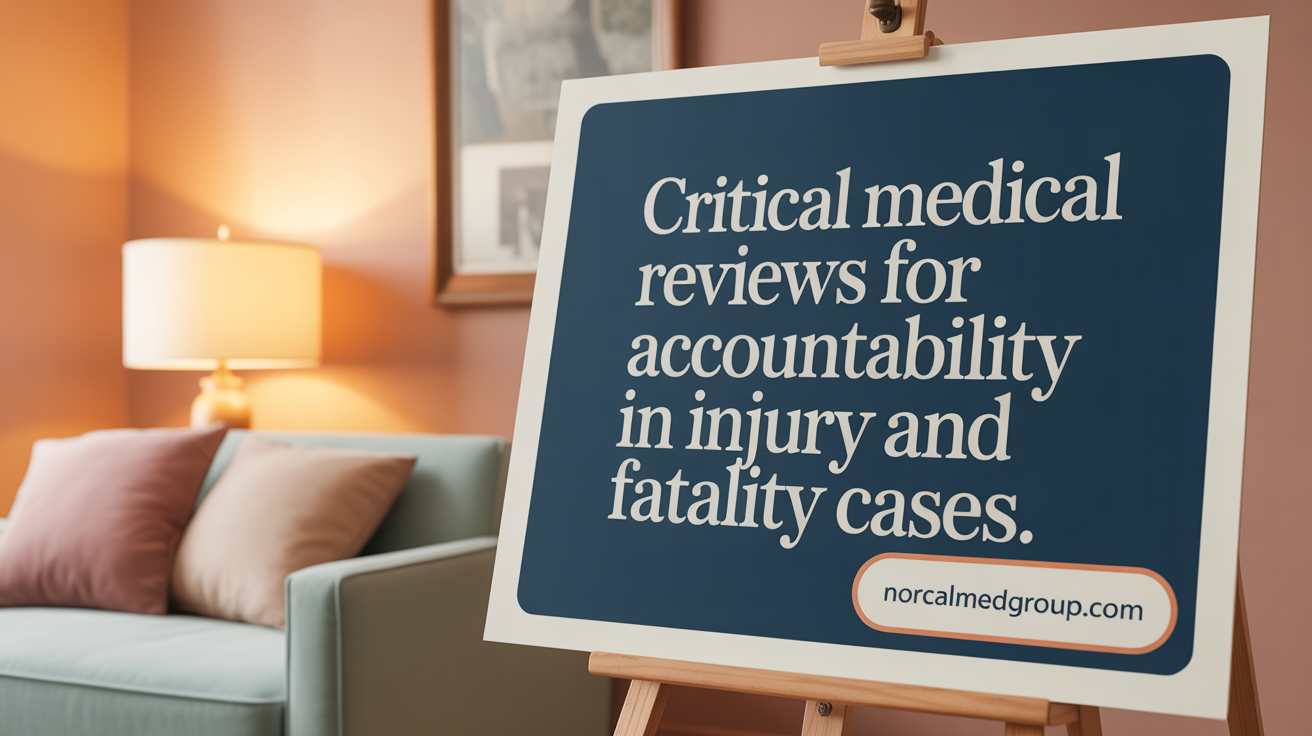
How do medical reviews help establish the cause and seriousness of injuries or death?
Medical reviews play an essential role in understanding the details behind injuries or death in legal cases. Experts carefully analyze medical records to determine what caused the injury or fatality and assess how severe the harm is. This process might include examining hospital reports, diagnostic test results, and treatment notes.
By piecing together the sequence of events, review specialists can identify if the injury was a direct result of medical negligence or an unavoidable complication. For death cases, reviews help confirm whether the death was linked to medical errors or other factors. This precise assessment guides the legal process, establishing a clear connection between actions and consequences.
In personal injury and malpractice lawsuits, such thorough evaluations are vital for validating claims and supporting fair awards or settlements. They uncover critical evidence, such as delayed diagnosis or improper treatment, that can influence court decisions.
Enhancing Medical Review Effectiveness: Second Opinions and EMRs
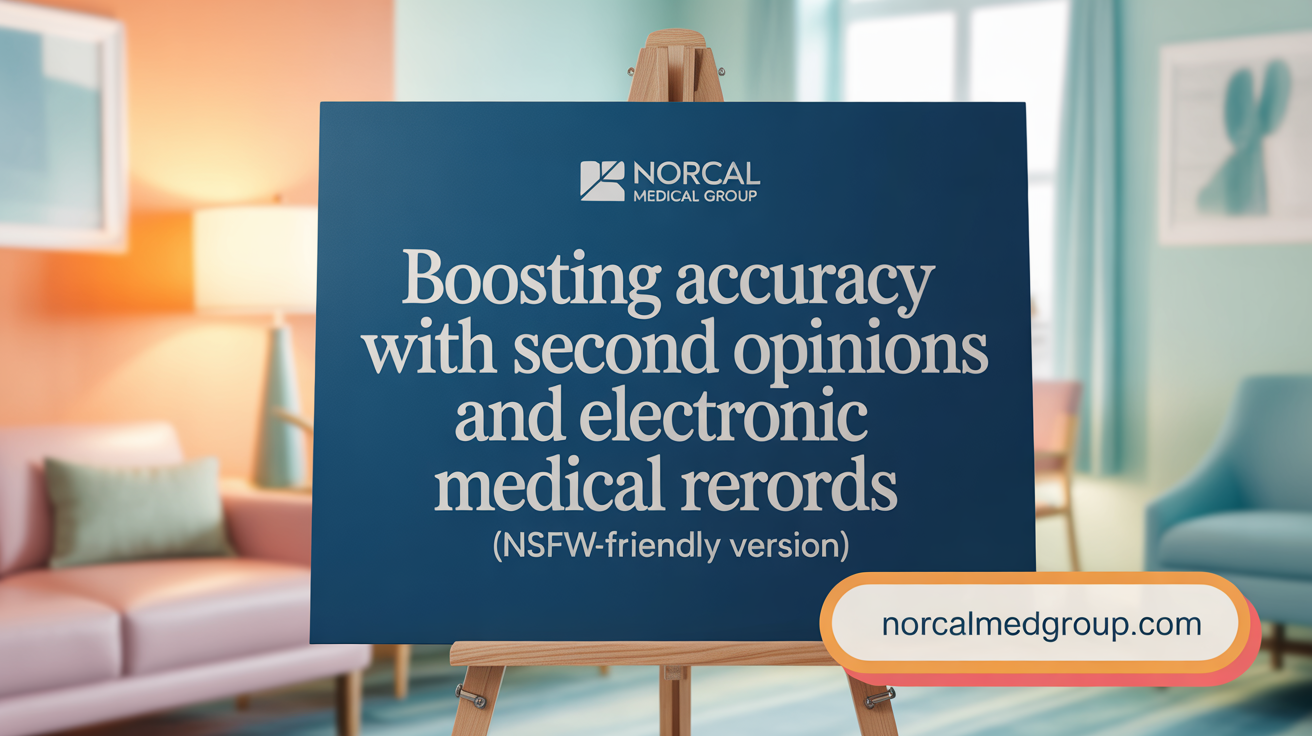
How do second opinions and expert hospital reviews benefit the uncovering of critical medical details?
Second opinions and expert hospital reviews play a vital role in thoroughly uncovering critical medical details. By providing independent evaluations, these processes help identify overlooked facts, correct diagnostic errors, and offer alternative interpretations of clinical data. They are especially crucial in complex cases such as cancer diagnoses or rare diseases where initial assessments may be delayed or incorrect.
Research shows that second opinions can significantly reduce misdiagnosis rates—from around 50% to approximately 16%—leading to more accurate diagnoses. This not only improves the effectiveness of treatment plans but also helps avoid unnecessary or invasive procedures.
Patients benefit from additional perspectives that clarify medical conditions, boosting confidence and trust in their care. Legal and investigative professionals rely on these insights to strengthen cases, make informed decisions, and ensure that no critical details are missed.
What role do electronic medical records (EMRs) play in detecting overlooked information?
Electronic Medical Records (EMRs) are essential tools in revealing overlooked information within a patient’s health data. Their comprehensive and searchable nature allows clinicians and reviewers to identify inconsistencies, omissions, and crucial gaps that might otherwise go unnoticed.
Advanced features such as analytics, cross-referencing, and decision-support alerts facilitate meticulous review, reducing the risk of missed diagnoses or treatment oversights. EMRs enable efficient access to longitudinal data, which helps in tracking the progression of care and verifying adherence to standard protocols.
However, challenges remain. Complex interfaces, data noise, and time-consuming data entry can impair EMRs’ ability to detect all overlooked details. Continued improvements in usability and automation are necessary to maximize their potential as tools for quality assurance and error reduction.
What educational insights should attorneys, investigators, and individuals have regarding medical record review?
Legal professionals, investigators, and patients alike should understand that comprehensive medical record review is fundamental to establishing clear facts, liability, and causation in legal disputes. Familiarity with medical terminology, proper organization of records, and identification of common errors enhances review accuracy.
Moreover, knowledge of privacy laws such as HIPAA helps ensure legal and ethical compliance when handling sensitive information. Engaging professionals like legal nurse consultants can improve the depth of analysis, support credibility through expert testimony, and save valuable time.
Effective review practices include systematically collecting all relevant documentation, noting key information, and clearly summarizing findings to bolster legal strategies. Mastering these skills empowers professionals to build stronger cases, assess damages accurately, and uphold ethical standards, ultimately leading to better outcomes for clients and stakeholders.
Ensuring No Detail is Overlooked Through Expert Medical Reviews
Medical record reviews are indispensable in the pursuit of justice and accuracy within legal and medical contexts. By leveraging expert analysis, advanced technologies, and thorough processes, these reviews illuminate details that might otherwise remain hidden. From detecting errors and omissions to validating claims in injury, malpractice, and death cases, the comprehensive scrutiny of medical records fortifies case strategies and supports informed decision-making. Experts and second opinions further enhance this process, uncovering critical nuances that strengthen legal outcomes. For attorneys, investigators, and affected individuals, understanding and utilizing medical record reviews not only uncovers missed details but also ensures accountability and better health and legal resolutions.
References
- The Critical Role of Medical Records Review in Legal Cases
- What Can Be Uncovered with a Medical Records Review?
- The Importance of Second Opinions in Medical Diagnoses
- What Is Medical Record Review In Legal Cases? | OAS
- Why Identifying Missing Records Is Vital in Legal and Medical Cases
- Finding Evidence of Malpractice in Your Electronic Medical Record
- Medical Chart Reviews & Chronologies: A Legal Guide
